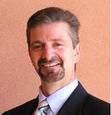This is the first in a series of articles about entrepreneurs who have AD/HD.
The United States is in the midst of an entrepreneurial renaissance. People are literally waking up to the idea that they can work for themselves and make a lot of money doing it. And, while there are as many types of entrepreneurs as there are businesses, most entrepreneurs share some common traits. They tend to be visionaries. People who go into business for themselves tend to be risk takers.
After almost a decade of coaching entrepreneurs, it has also been my observation that a majority of all entrepreneurs have Attention Deficit Hyperactivity Disorder, or AD/HD. They may not be taking medication and many of them haven't even been diagnosed, but anyone who knows AD/HD would recognize the signs. The chart below compares AD/HD with Entrepreneurship. As they use to say on those old TV shows, only the names have been changed.
Signs of AD/HD Characteristics of an Entrepreneur
Distracted, seems to always have something new to think about Constantly has new ideas for how to improve the business
Starts several projects at the same time, may not complete any of them Flexible. Approaches problems from several different angles, always ready to change direction if that is what is needed
Distorted sense of time. For example, will spend hours playing a video game without realizing how much time has passed. Immerses him or herself in the job and often does not realize how much time has passed
Visual thinkers Visionaries who paint a picture for others
Hands-on learners Hands-on managers
Hyperactive Always on the go
Once you understand what AD/HD looks like, you could easily conclude that virtually all successful entrepreneurs have AD/HD. Experts on AD/HD believe that Benjamin Franklin had AD/HD. Coincidentally, Franklin is also thought to be the first American entrepreneur. There is evidence that Thomas Edison had AD/HD, as did Henry Ford, Walt Disney and both of the Wright Brothers. You don't have to go as far back as Edison and Ford to find examples of successful AD/HD entrepreneurs. David Neeleman, CEO of JetBlue, has publicly acknowledged his AD/HD. Neeleman has chosen not to take medication for AD/HD and has instead learned how to use his "unique brain wiring" to his advantage, now that he better understands it.
Understanding your AD/HD, if you have AD/HD, could be the first step towards realizing your full potential in business and in your personal life.
Thomas Apple, the inventor/designer of the NASDAQ video billboard in New York's Times Square and a successful businessman, told ADDitude magazine how his undiagnosed AD/HD had affected his life: "I was 40 years old when I realized I really was a smart person," he says. Like many entrepreneurs and others who don't color in the lines, Apple had trouble as a child. "I was well on the way to delinquent behavior by third-grade," Apple recalls. "I thought, 'if I'm going to be treated this way, I might as well act this way." After his son and daughter were diagnosed with AD/HD, Apple took a hard look at his pattern of career difficulties and two failed marriages and realized that he probably had it too. A doctor confirmed the diagnosis. Apple now takes medication to treat his AD/HD, but he realizes that there's more to it than taking medication. ADD isn't a 'take two pills and call me in the morning' type of diagnosis," he says. "It is something that you have to do 24/7."
Apple's story about realizing he had AD/HD after first seeing it in his children is very common among adults who have been diagnosed. AD/HD is a genetic disorder. If a child has it, there is up to a 70% chance that at least one of the parents has it too.
Next: How your AD/HD affects your business
David Giwerc, MCC, (Master Certified Coach, ICF) is the Founder/President of the ADD Coach Academy (ADDCA), www.addca.com, a comprehensive training program designed to teach the essential skills necessary to powerfully coach individuals with Attention Deficit Hyperactivity Disorder.
He has been featured in the New York Times, London Times, Fortune, INC magazine and other well-known publications. He has a busy coaching practice dedicated to Entrepreneurs, Small business owners, Executives with ADHD and the mentoring of ADD coaches. He has been a featured speaker at ADDA, CHADD, International Coach Federation and other conferences. David is the current President of ADDA, www.add.org

Post new comment
Please Register or Login to post new comment.